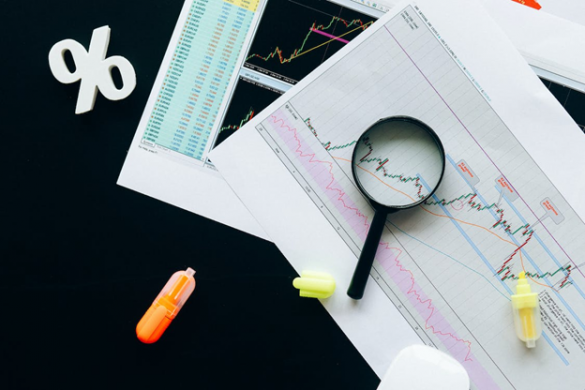Global economic forecasting plays a crucial role in understanding and predicting the future trends of the world economy. In the modern age, with rapid advancements in technology and the increasing influence of globalization, it becomes even more vital to examine the implications of these factors on economic forecasting. This article aims to delve into the key aspects of global economic forecasting, analyze the challenges faced in the modern age, explore the future developments in this field, and highlight the significance of accurate forecasting for policymakers and businesses.

Understanding Global Economic Forecasting
The role of economic forecasting is to estimate future economic conditions based on historical data and statistical models. Forecasting helps in decision-making processes by providing valuable insights into economic trends, risks, and opportunities. It enables policymakers, businesses, and investors to prepare for potential economic fluctuations and make informed decisions.
Economic forecasting plays a crucial role in shaping financial policies, monetary decisions, and investment strategies. By analyzing past economic data and using statistical models, forecasters can predict future economic conditions. This information is vital for policymakers as it allows them to formulate effective economic policies that can promote growth, stability, and sustainability.
For businesses, economic forecasting is essential for strategizing their operations. By understanding the potential economic trends, businesses can align their production, marketing, and sales strategies accordingly. This helps them optimize their resources, minimize risks, and maximize profits. Moreover, forecasting enables businesses to identify emerging opportunities and adapt their business models to capitalize on them.
Investors also heavily rely on economic forecasting to make informed investment decisions. By analyzing economic indicators and trends, investors can identify sectors or industries that are likely to perform well in the future. This allows them to allocate their resources strategically, minimize risks, and maximize returns on their investments.
The Role of Economic Forecasting
Economic forecasting plays a significant role in shaping financial policies, monetary decisions, and investment strategies. It assists policymakers in formulating effective economic policies and enables businesses to strategize their operations for future growth. Additionally, forecasting aids investors in identifying potential investment opportunities, minimizing risks, and maximizing returns.
When it comes to financial policies, economic forecasting provides policymakers with crucial information about the current and future state of the economy. This information helps them determine the appropriate interest rates, inflation targets, and fiscal policies to maintain stability and promote economic growth. By using accurate economic forecasts, policymakers can make informed decisions that have a positive impact on the overall economy.
For businesses, economic forecasting helps in planning and decision-making. By analyzing economic trends and forecasts, businesses can anticipate changes in consumer demand, market conditions, and competitive landscape. This enables them to adjust their production levels, marketing strategies, and pricing policies accordingly. By aligning their operations with the predicted economic conditions, businesses can optimize their performance and gain a competitive edge.
Investors heavily rely on economic forecasting to identify potential investment opportunities. By analyzing economic indicators, such as GDP growth, inflation rates, and employment data, investors can assess the health of different sectors and industries. This information allows them to make informed decisions about where to allocate their funds, minimizing the risk of investing in underperforming sectors and maximizing the potential for high returns.
Key Components of Economic Forecasting
Economic forecasting encompasses several key components, including analyzing historical data, identifying relevant economic indicators, choosing appropriate forecasting models, interpreting the results accurately, and constantly evaluating and updating the forecasts. These components are essential for producing reliable and accurate economic forecasts.
When it comes to analyzing historical data, forecasters examine past economic trends, such as GDP growth, inflation rates, unemployment rates, and interest rates. By understanding how these variables have behaved in the past, forecasters can identify patterns and relationships that can help predict future economic conditions.
Identifying relevant economic indicators is another crucial component of economic forecasting. Forecasters need to determine which variables are most closely related to the economic phenomena they are trying to predict. For example, when forecasting GDP growth, indicators such as consumer spending, business investment, and government expenditure are often considered.
Choosing appropriate forecasting models is also essential. There are various statistical techniques and models available, such as time series analysis, regression analysis, and econometric models. Forecasters need to select the model that best fits the data and provides accurate predictions. This requires a deep understanding of statistical methods and their application to economic data.
Interpreting the results accurately is another critical component of economic forecasting. Forecasters need to analyze the output of their models and interpret the findings in a meaningful way. This involves understanding the limitations of the models, considering the uncertainty associated with the forecasts, and providing clear explanations of the implications of the forecasts.
Finally, economic forecasts need to be constantly evaluated and updated. Economic conditions can change rapidly, and new data becomes available over time. Forecasters need to regularly assess the accuracy of their forecasts and update them based on new information. This ensures that the forecasts remain relevant and reliable.
The Modern Age and Its Impact on Forecasting
Rapid technological advancements and the increasing interconnectedness of economies across the globe bring about significant changes in the field of economic forecasting. The modern age presents both opportunities and challenges, making it imperative to explore the impact of these developments.
In the modern age, as we navigate the intricacies of global economic forecasting, the role of Granimator becomes paramount. This novel approach, rooted in quantum computing, has the capability to sift through and analyze massive financial data sets at unprecedented speeds. As economic forecasting increasingly grapples with a myriad of variables and unforeseen market dynamics, granimator offers a promising toolset. Its ability to provide deeper insights and more accurate predictive models could reshape our understanding of global economic trends and challenges in the years to come.
Technological Advancements and Forecasting
The advent of sophisticated data analytics tools, artificial intelligence, and machine learning algorithms revolutionizes the way economic forecasting is conducted. These technological advances enable economists to gather and analyze vast amounts of data quickly and efficiently. By leveraging predictive analytics, economists can generate more accurate and timely forecasts.
The Influence of Globalization on Forecasting
Globalization has made the world more interconnected than ever before. Economic activities in one part of the world can have cascading effects on economies worldwide. This interconnectedness poses both challenges and opportunities for economic forecasting. On one hand, forecasting models need to take into account the international spillover effects of economic events. On the other hand, increased trade and investment provide valuable data that can enhance the accuracy of forecasts.
Challenges in Modern Global Economic Forecasting
While the modern age brings new opportunities, it also presents unique challenges for global economic forecasting.
Dealing with Economic Uncertainties
Uncertainties, such as geopolitical events, natural disasters, and policy changes, can significantly impact economic forecasts. The challenge lies in incorporating these uncertainties into forecasting models accurately. Economists need to develop robust models capable of handling unpredictable events and providing reliable forecasts even in the face of uncertainty.
The Problem of Data Overload
In the modern age, the abundance of economic data can be overwhelming. Economists must carefully filter and analyze the data to distinguish between noise and meaningful information. Additionally, data quality and reliability pose considerable challenges. Addressing these issues is crucial for enhancing the accuracy and usefulness of economic forecasts.
The Future of Global Economic Forecasting
As we continue to advance technologically, the future of global economic forecasting holds great promise.
Predictive Analytics and Machine Learning
Predictive analytics, coupled with machine learning algorithms, will play an increasingly vital role in economic forecasting. These technologies can identify complex patterns and relationships in vast datasets, leading to more accurate forecasts. By leveraging the power of predictive analytics and machine learning, economists can uncover hidden insights and refine their forecasting models.
The Role of Artificial Intelligence in Forecasting
Artificial intelligence (AI) has the potential to revolutionize economic forecasting. AI algorithms can continuously learn and adapt from new data, improving their forecasting accuracy over time. AI-powered forecasting systems can automate data analysis, generate real-time forecasts, and provide actionable insights. The integration of AI into economic forecasting will result in more precise, dynamic, and responsive forecasts.
Implications for Policy Makers and Businesses
Accurate economic forecasting has significant implications for policy makers and businesses alike.
Strategic Decision Making Based on Forecasts
Policy makers rely on economic forecasts to design effective macroeconomic policies and regulate economic activities. Governments can use forecasts to predict the impact of policy interventions, identify potential risks, and steer the economy towards stable growth. Similarly, businesses can make informed decisions regarding investments, resource allocation, and market entry based on reliable economic forecasts.
The Importance of Accurate Forecasting for Economic Growth
Accurate economic forecasting is crucial for sustaining economic growth and stability. It enables proactive decision making, minimizes risks, and maximizes opportunities. By using accurate forecasts, policy makers and businesses can navigate uncertainties and capitalize on favorable economic conditions to drive sustainable economic growth.
In conclusion, global economic forecasting in the modern age is influenced by technological advancements and the impact of globalization. While these developments present challenges, they also offer opportunities to enhance forecasting accuracy. The future of global economic forecasting lies in predictive analytics, machine learning, and the integration of artificial intelligence. For policy makers and businesses, accurate forecasting is instrumental in strategic decision making and driving economic growth. By embracing these advancements and leveraging accurate forecasts, we can navigate the complexities of the global economy and build a brighter future.

 Hot Features
Hot Features











